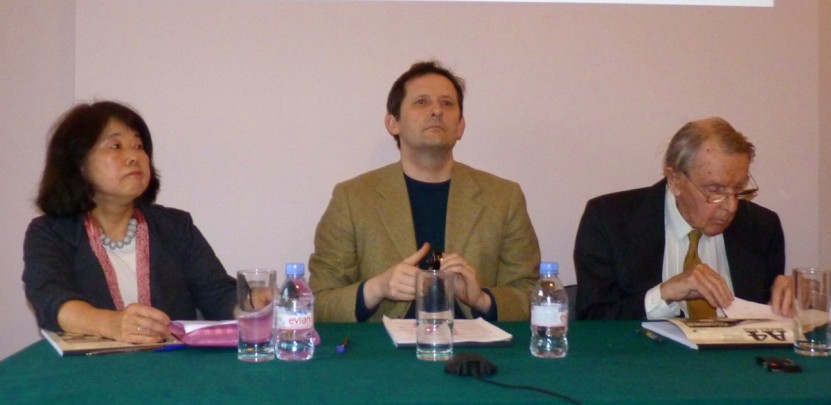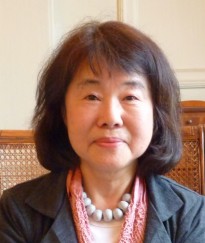 Seminar
SeminarThursday 3 April 2014
6:00pm – 7:00pm
The UK-Japan Alliance during World War I
Drinks reception from 7:00pm
13/14 Cornwall Terrace, Outer Circle, London NW1 4QP
Organised by The Daiwa Anglo-Japanese Foundation
One hundred years after the start of the First World War, this seminar presents two different points of view on a turning point in the Anglo-Japanese Alliance.
Dr Ayako Hotta-Lister talked about the alliance in a more positive light. Being an ally of Britain, Japan was asked to participate in the First World War at an early stage, successfully defeating Germany in the Far East. Some Japanese leaders, however, were pro-German, or sympathised with the German position in various ways. Britain was well aware that such sentiments were prevalent in some quarters in Japan, and Dr Hotta-Lister will outline Britain’s efforts to bring Japan back to the Allied side.
Dr Anthony Best explained that in later years Britain lauded Japan for its help during the conflict, but the reality was somewhat different. By the end of 1915 the alliance was under serious strain due to rising British resentment of Japan. It might be thought that this arose in response to Japan’s Twenty-One Demands on China, but Japan had also decided to veto Chinese entry into the conflict on the Allied side. From this point on, the British officials who dealt directly with East Asian affairs looked upon Japan with suspicion, with the result that in 1920-1, they were very ambivalent about whether the alliance should be renewed.
The seminar was chaired by Professor Ian Nish, himself an expert in the period.
About the contributors

Dr Ayako Hotta-Lister
Dr Ayako Hotta-Lister received a Ph.D. in International History at the London School of Economics and Political Science (LSE) in 1995. She is the author of The Japan-British Exhibition of 1910: Gateway to the Island Empire of the East (Japan Library 1999). The follow-up publication Commerce and Culture at the 1910 Exhibition: Centenary Perspectives (Global Oriental 1913) was based on papers presented by scholars in many different disciplines at two symposia in London and Tokyo in 2010, funded by a Daiwa Foundation Small Grant, and was jointly edited with Professor Ian Nish. She has also contributed to Japanese Envoys in Britain (Global Oriental 2007), and Britain and Japan Biographical Portraits Vol. I (1994) and V (2005). Her on-going research includes media coverage of the Anglo-Japanese Alliance.

Dr Antony Best
Dr Antony Best is a Senior Lecturer in International History at the LSE. He is the author of Britain, Japan and Pearl Harbor: Avoiding War in East Asia, 1936-1941, (Routledge, London, 1995), British Intelligence and the Japanese Challenge in Asia, 1914-1941 (Palgrave/Macmillan, Basingstoke, 2002), and co-author of International History of the Twentieth Century and Beyond, 2nd edition, (Routledge, London, 2008). He is currently working on a book provisionally entitled The Two Island Empires: British Interaction with Japan, 1854-1975, which will look at the course of Anglo-Japanese relations from the arrival of Admiral Stirling in Nagasaki during the Crimean War until the first visit made to Japan by Queen Elizabeth II. He is also editing a book for Routledge in memory of Dr Peter Lowe, entitled Britain’s Retreat from Empire in East Asia, 1905-1980: Essays in Honour of Peter Lowe.

Professor Ian H. Nish
Professor Ian H. Nish (Chair) is Professor Emeritus of International History at the LSE where he worked from 1962 to 1991. His main field of research is Japan’s foreign relations, and particularly her relations with China over the twentieth century. His publications include The Japanese in War and Peace, 1942-48 (Global Oriental, 2011), Japanese Envoys in Britain, 1862-1964 (Global Oriental, 2007) and Japanese Foreign Policy in the Interwar Period (Praeger Studies of Foreign Policies of the Great Powers, 2002).